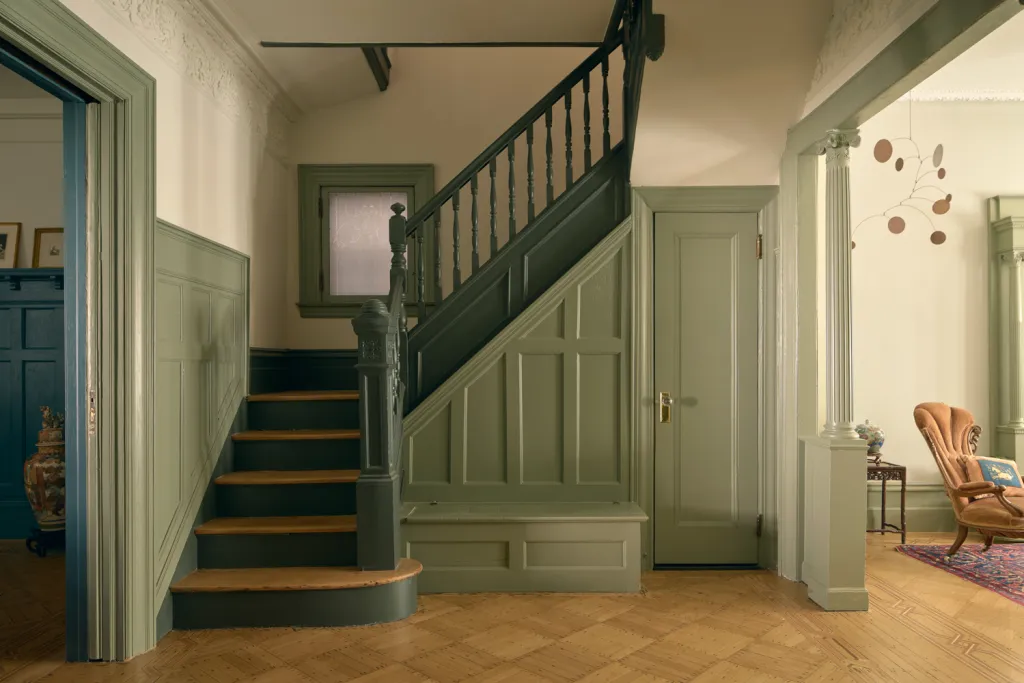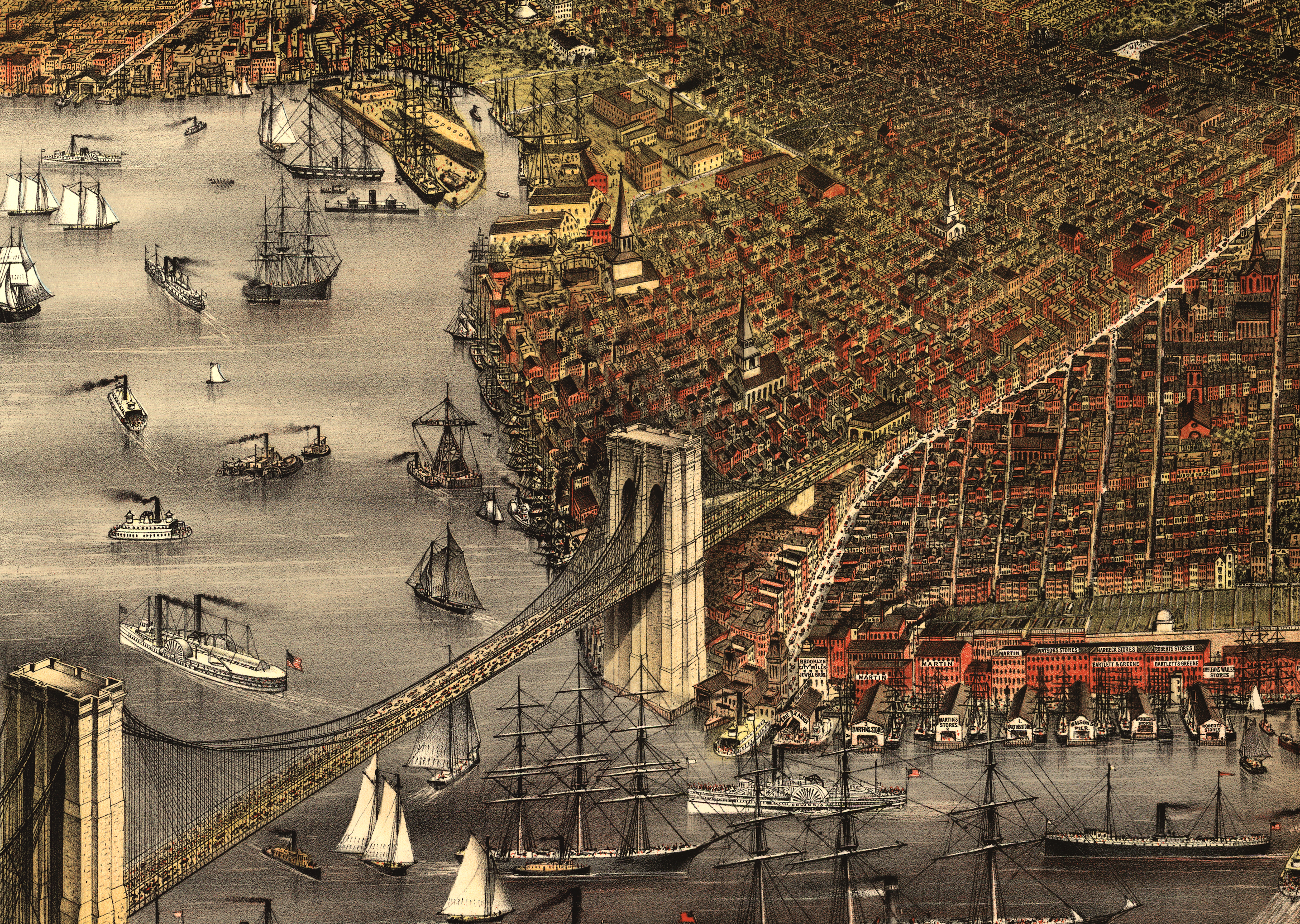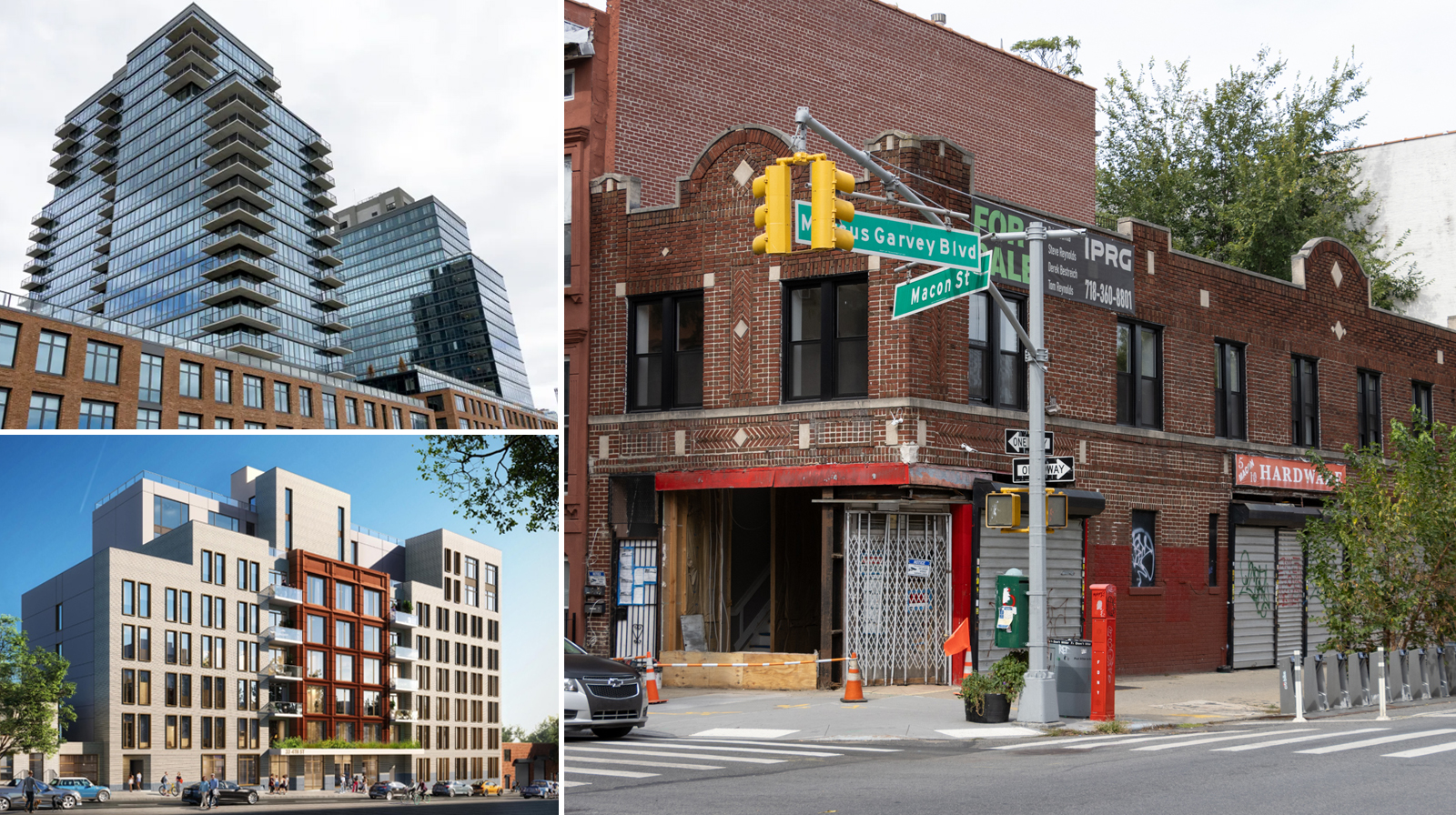NYCHA Boiler That Exploded Was One of Dozens With Expired Permits
Machinery at The Bronx’s Mitchel Houses did not get inspected for 17 years, despite a pact to get all public housing heating plants checked for environmental safety.

Residents of a NYCHA building in the South Bronx were evacuated after part of their building collapsed, October 1, 2025. Photo by Ben Fractenberg/THE CITY
by Greg B. Smith
This article was originally published on November 4 at 5 a.m. EST by THE CITY
Nearly a decade ago, hundreds of NYCHA’s boilers were completely out of compliance with the city’s anti-pollution rules. Only a small percentage had received the required inspection by the Department of Environmental Protection (DEP). Some 70 percent were running without mandated certificates of operation.
So NYCHA and DEP signed off on a memorandum of understanding (MOU) requiring the authority to get all its boilers with up-to-date certificates to operate by July 2021.
It never happened.
On October 1, one of those out-of-compliance boilers at Mitchel Houses in The Bronx exploded, causing a 20-story chimney to collapse and send tens of thousands of bricks crashing down to the ground next to a basketball court and near a playground. By some miracle, no one was injured.
Investigators believe that the explosion was triggered by gas building up inside an off-line boiler, traveling up the chimney, then igniting when a NYCHA worker flipped the switch to turn on the boiler. Tenants in the apartment line next to the chimney were evacuated and temporarily housed in hotels, and the building’s gas was turned off for weeks. The final cause remains under investigation.
But NYCHA officials conceded that the DEP “certificate to operate” for that boiler and seven others in the building at 205 Alexander Avenue had expired in 2009. On the day of the disaster, they had not been inspected by the DEP for 17 years.
An analysis by THE CITY of DEP and NYCHA data found the Alexander Avenue boiler that blew up was one of at least 50 boilers scattered around the city in 14 NYCHA buildings operating with expired registrations or certificates to operate. When asked about this, NYCHA officials admitted that, despite the MOU with DEP, at least 180 of the 1,027 boilers it now maintains have yet to come into full compliance with either a proper certificate to operate or a registration with DEP.
NYCHA emphasizes that in addition to DEP inspections, all its boilers are also subject to regular safety inspections by the Department of Buildings, and that DOB inspectors found “no major safety issues” during a June examination of the Mitchel Houses boiler that blew up four months later. But the lack of DEP inspections over the years meant one less pair of eyes on these massive and potentially volatile pieces of equipment that provide heat and hot water to 3,400 tenants across 11 buildings at Mitchel.
DEP officials said their inspectors do not check gas line connections or safety equipment designed to prevent accidents like the one that occurred October 1. That’s done by DOB. But they do test the boiler’s combustion efficiency by turning it on, checking to ensure smoke levels are within an acceptable range and assessing the boiler’s draft pressure to confirm that the boiler was properly vented, DEP officials said.
Boilers such as the one at Mitchel Houses must be inspected by DEP every three years to keep their certificates to operate up to date. But for years the authority has struggled to keep up with basic maintenance in its 175,000 apartments. At some point, it stopped complying with the city’s Clean Air Tracking System (CATS).

By 2016, more than 70 percent of its boilers were no longer in compliance, triggering talks with the DEP to reach an agreement on how to get back in line with city law.
Exactly 19 years ago last Wednesday, NYCHA and DEP signed the agreement requiring the authority to come into compliance. The initial MOU did not include a specific timeline, but in July 2019, it was amended to require that NYCHA have all its boilers registered or with current certificates to operate by July 2021.
That amendment coincided with a separate agreement with the U.S. Department of Housing and Urban Development (HUD) in which NYCHA submitted to oversight by a federal monitor. The monitor then began performing an independent review of all of NYCHA’s efforts to clean up toxic mold, eliminate dangerous lead paint, fix perennially busted elevators, and eradicate persistent vermin populations in its developments.
One of the fixes required by HUD involved NYCHA’s aging boilers, most of which had been operating for decades without replacement. As part of that deal, NYCHA was supposed to replace 297 boilers systemwide by the end of 2026. NYCHA managed to install 133 replacements by the end of last year, but still has 159 to go. To meet its promise to replace the rest on time, it must replace seven every month, according to the NYCHA monitor’s April report.
NYCHA spokesperson Michael Horgan said under the HUD agreement, the authority “has made tangible improvements inside the homes and buildings of NYCHA residents” and “has marked transformative growth in the realms of accountability, governance, and compliance.” He declined to answer questions about the Mitchel Houses incident, noting a “multi-agency investigation into the incident at Mitchel Houses is ongoing.”
Under pressure to meet multiple goals, NYCHA management busted the deadline to get all its boilers in compliance with clean air inspections. Horgan said the authority is now “working with DEP to revisit the schedule for the remaining sites to be brought into compliance.” That includes 205 Alexander Avenue.
THE CITY’s examination of DEP data found that dozens of certificates to operate boilers had expired years ago, meaning they hadn’t been inspected by DEP for years.
The boilers at 205 Alexander Avenue, for instance, were last inspected by DEP in 2006 and approved for a certificate to operate that expired in 2009. At that time, NYCHA was required to reapply for a new inspection and an updated CTO, but NYCHA did no such thing. DEP, in response, took no action.
Acknowledging NYCHA’s ongoing struggle to confront its steadily deteriorating portfolio, DEP had embraced a protocol of not issuing violations on NYCHA boilers. Under the 2016 memo of understanding, that protocol continued, with DEP agreeing “that it will not issue violations to NYCHA with respect to any lapsed boiler registrations or CTO on account of the boilers without giving prior notice to NYCHA and an opportunity for NYCHA to demonstrate to the reasonable satisfaction of the DEP commissioner that it is making a concerted effort and consistent progress in reaching full compliance in accordance with this MOU.”
Since then DEP has issued no violations on NYCHA’s boilers, despite the fact that dozens have remained out of compliance for years. In response to THE CITY’s inquiry, DEP spokesperson Robert Wolejsza noted that the MOU deadline occurred during the Covid pandemic and stated that the agency “will continue working with NYCHA to revisit requirements for buildings/boilers that are currently out of compliance.”

As a result, the Mitchel Houses boilers remained in violation of the city rules on clean air inspections for years — a fact that wasn’t discovered until THE CITY learned of its existence after the October 1 gas explosion.
The same state of non-compliance is true for dozens of NYCHA boilers across the city — in some cases for decades. The certificates to operate boilers at the Gowanus Houses in Boerum Hill, for example, expired in 1986.
Most boiler certificates to operate expired within the last few years.
Though the boilers at Morissania Houses in the Bronx near Yankee Stadium expired in April 2021, NYCHA is just now moving to obtain an updated certificate to operate.
Certificates to operate boilers at the Parkside Houses next to the Bronx Botanical Garden terminated in July 2021 and remain out of compliance. NYCHA said a “complicated repair is under way at this location, which will need to be completed prior to applying for the appropriate DEP registration.”
In some cases the boilers were in such a state they had to be shut down.

At Lincoln Houses in East Harlem, the certificate to operate for the five boilers there expired nearly five years ago in January 2021. The entire boiler plant was then taken offline for replacement, forcing NYCHA to bring in temporary mobile boilers to heat the development. NYCHA said a new certificate to operate at Lincoln will be “acquired upon commissioning of the new plant.”
A similar circumstance is about to occur at the Sumner Houses in Bed Stuy, where there is no current registration or “certificate to operate” for the boiler there. That plant is set to be taken offline next month, replaced by mobile boilers.
Related Stories
- Elevated Lead Levels in Kids at NYCHA Childcare Centers Raise Alarms
- Trump Public Housing Time Limits Could Displace 300,000 NYC Residents, Internal Analysis Finds
- Trump Budget Proposal Could Devastate New York’s Housing Landscape
Email tips@brownstoner.com with further comments, questions or tips. Follow Brownstoner on X and Instagram, and like us on Facebook.





What's Your Take? Leave a Comment